Indigenous Governance Database
Tribal Constitutions Seminars
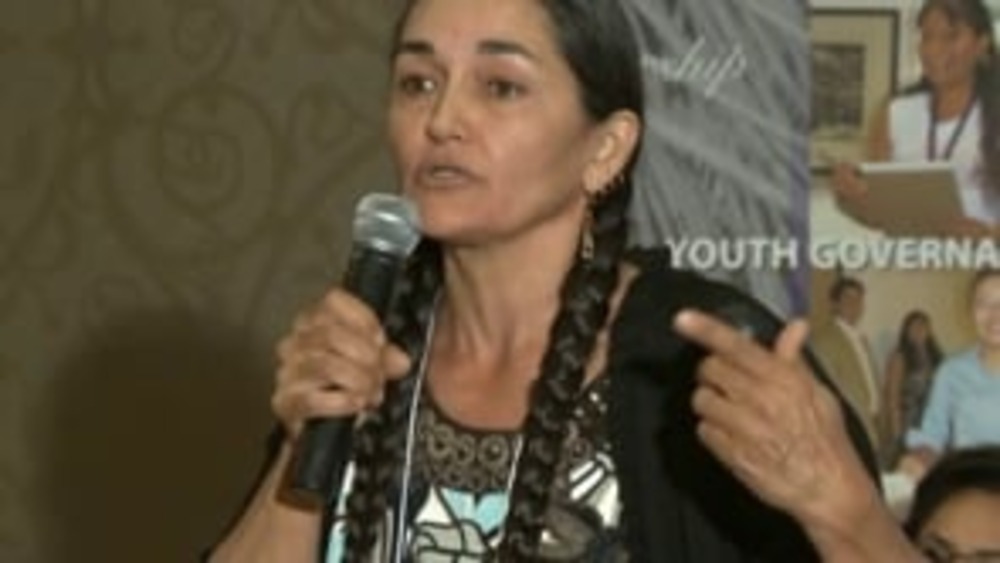
Gwen Phillips: The Relationship Between Constitution, Culture, and Citizenship
Gwen Phillips, Director of Corporate Services and Governance Transition with the Ktunaxa Nation, discusses some of the issues that the Ktunaxa Nation is deliberating as it engages the question of how to redefine its criteria for citizenship.
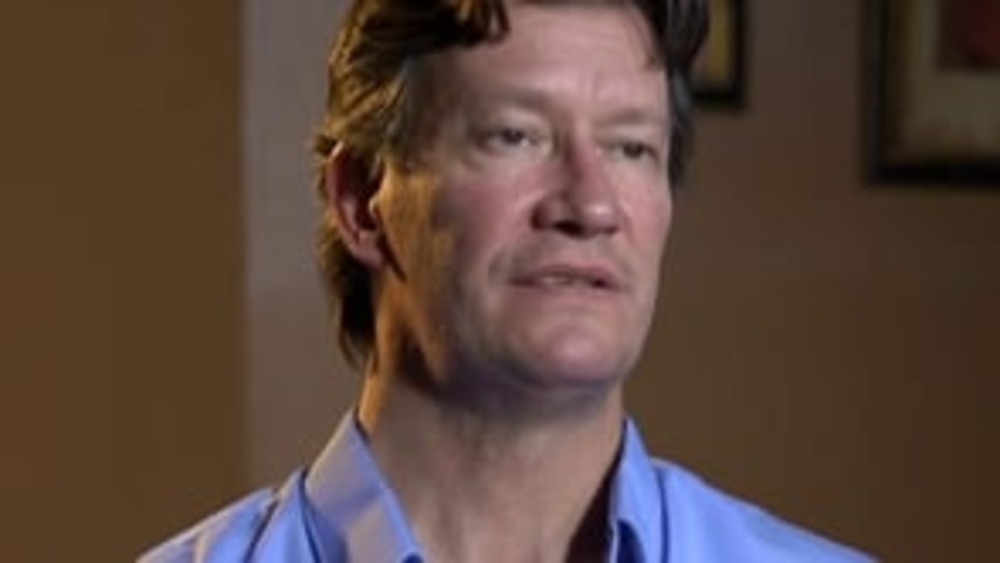
Native Leaders: The Purpose and Challenge of Redefining Citizenship
Several Native leaders share their thoughts on why their nations are deliberating potential changes to their citizenship criteria, and they discuss some of the many challenges that Native nations face in this complex area of governance.
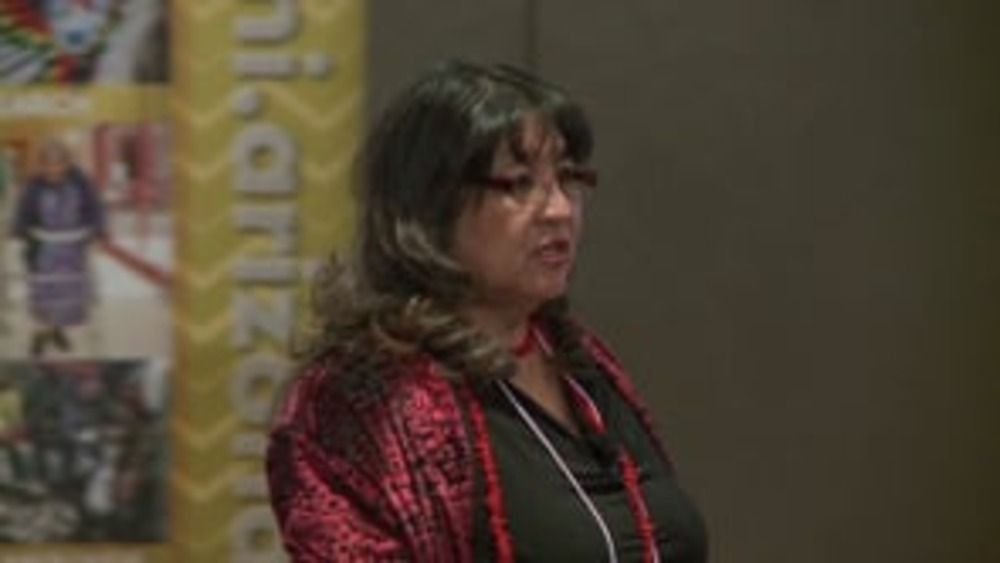
Joan Timeche: The Two Tests a Constitution Must Pass (Presentation Highlight)
In this highlight from the presentation "The Diversity of Governing Systems and Constitutions in Indian Country," NNI's Joan Timeche explains the two tests (cultural legitimacy and effectiveness) that Native nation constitutions must pass if they are going to prove capable of achieving their…
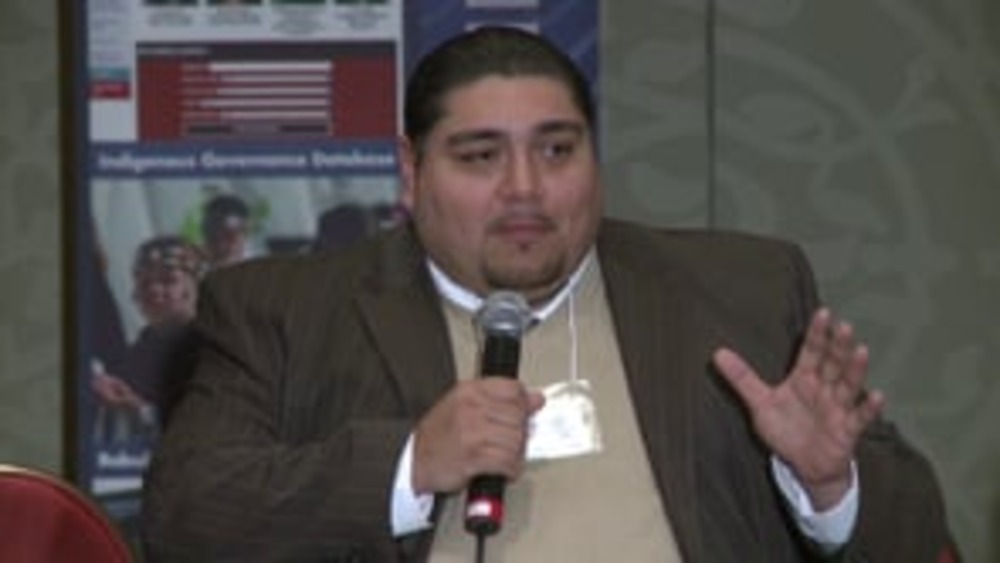
Constitutions and Constitutional Reform - Day 2 (Q&A)
Presenters from the second day of NNI's "Tribal Constitutions" seminar gather to field questions from seminar participants on a variety of topics ranging from citizen education and engagement to the role off-reservation citizens can and should play in a Native nation's present and future.
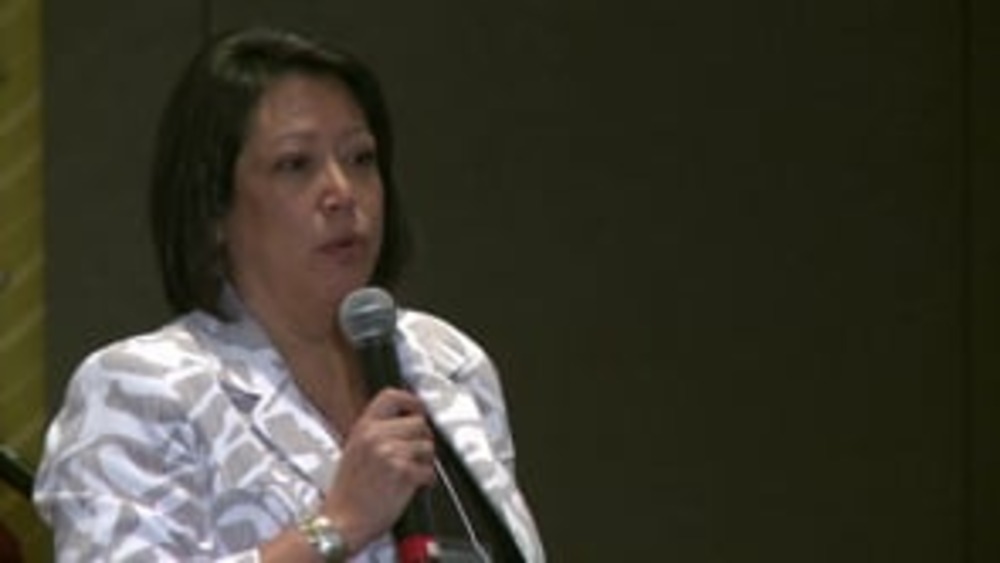
Angela Wesley: A "Made in Huu-ay-aht" Constitution
Angela Wesley, Chair of the Huu-ay-aht Constitution Committee, discusses the process that the Huu-ay-Aht First Nations followed in developing their own constitution and system of government. She describes how Huu-ay-aht's new governance system is fundamentally different from their old Indian Act…
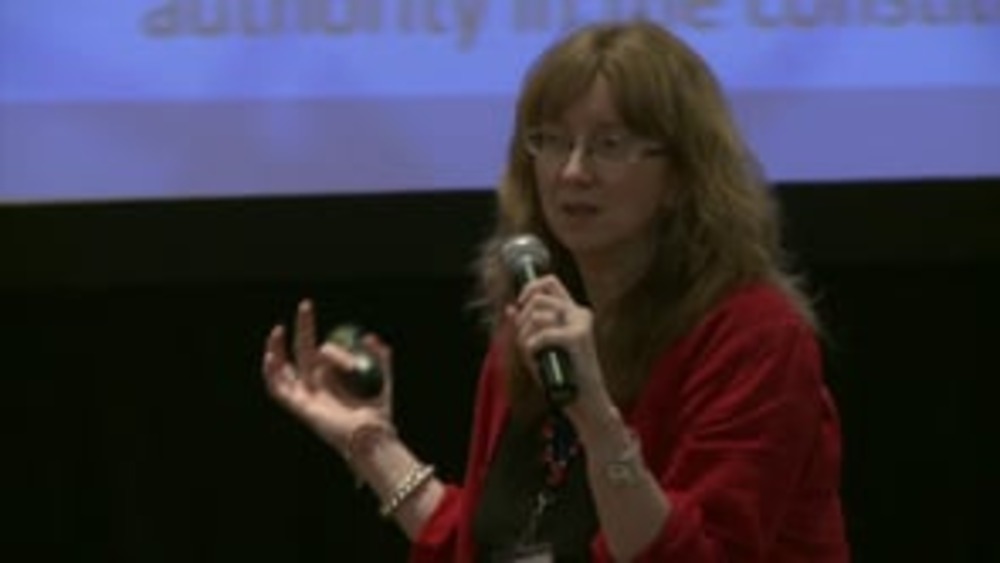
Melissa Tatum: Striking a Balance on What to Include in Your Constitution (Presentation Highlight)
In this highlight from the presentation "Key Things a Constitution Should Address: 'How Do We Resolve Disputes?'," legal scholar Melissa Tatum discusses the importance of a Native nation striking a balance between what to include in its constitution and what not to include in its constitution so…
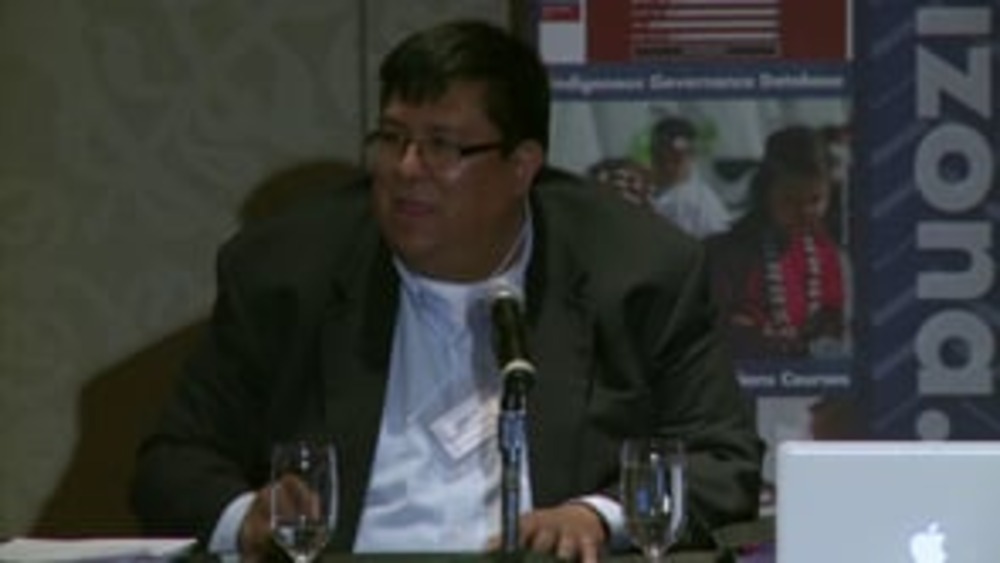
Anthony Hill: Constitutional Reform on the Gila River Indian Community
Gila River Indian Community (GRIC) Chief Judge Anthony Hill, who served as Chair of the Gila River Constitutional Reform Team, discusses the reform process that GRIC followed, the current state of GRIC's reform effort, and what he sees as lessons learned from Gila River's experience.
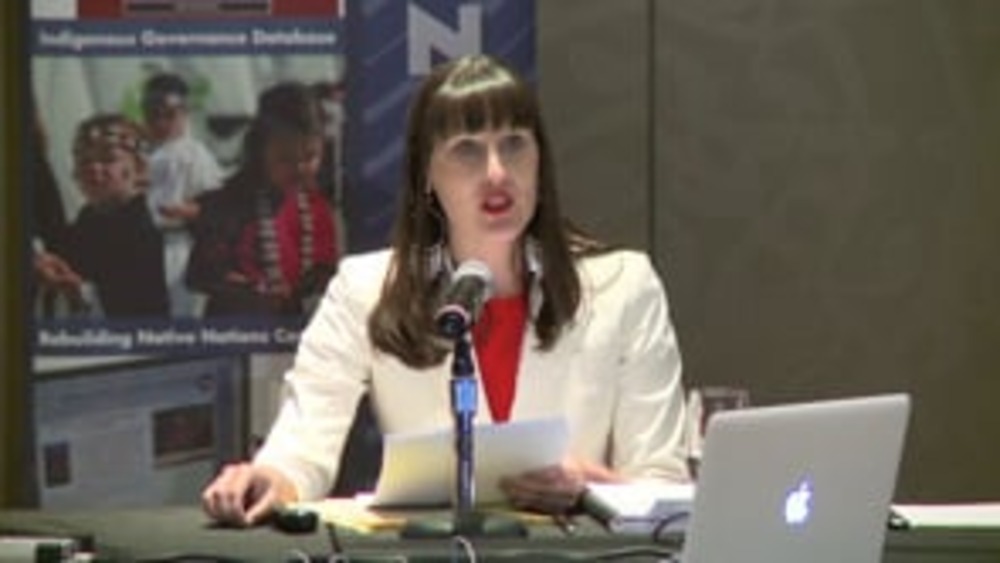
Jill Doerfler: "No Easy Answer": Citizenship Requirements
Anishinaabe scholar Jill Doerfler discusses the process that the White Earth Nation followed to arrive at their new constitution, and details the evolving debate at White Earth about which citizenship criteria it would incorporate into this new governing document.
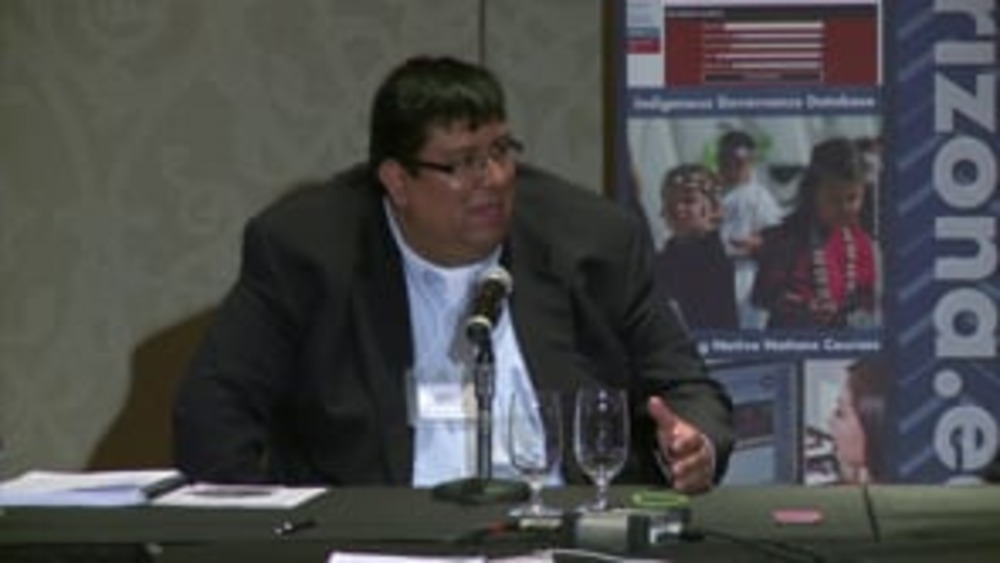
Anthony Hill and Angela Wesley: The Process of Constitutional Reform: The Challenge of Citizen Engagement (Q&A)
Presenters Anthony Hill and Angela Wesley field questions from the audience about the approaches their nations took to constitutional reform.
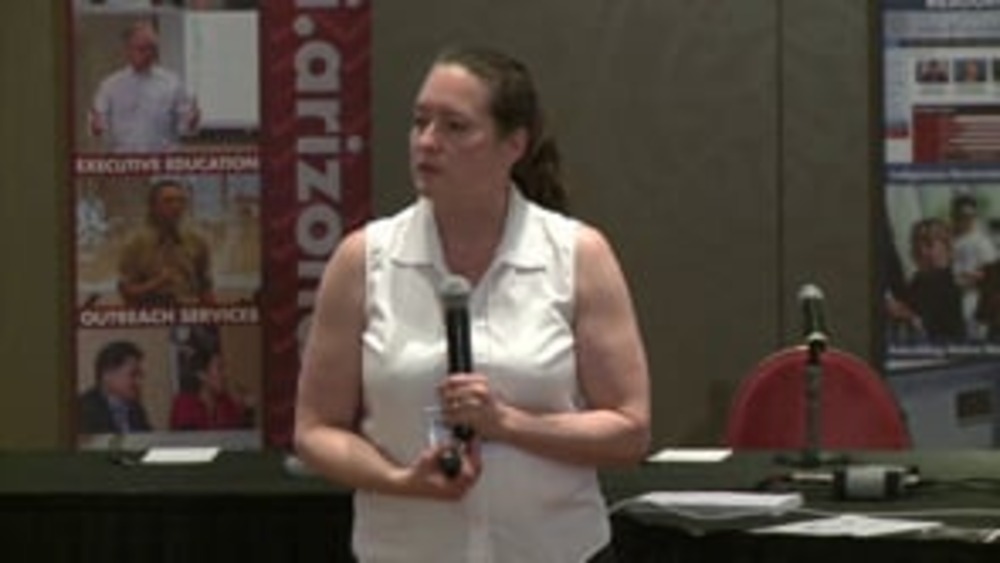
Miriam Jorgensen: Constitutions: Creating Space for Court-Made Law and Judicial Review (Presentation Highlight)
In this highlight from the presentation "Key Things a Constitution Should Address: 'How Do We Make Law?'," NNI's Miriam Jorgensen explains how a growing number of Native nations are creating space for court-made law and judicial review of legislative and executive actions in their redesigned…
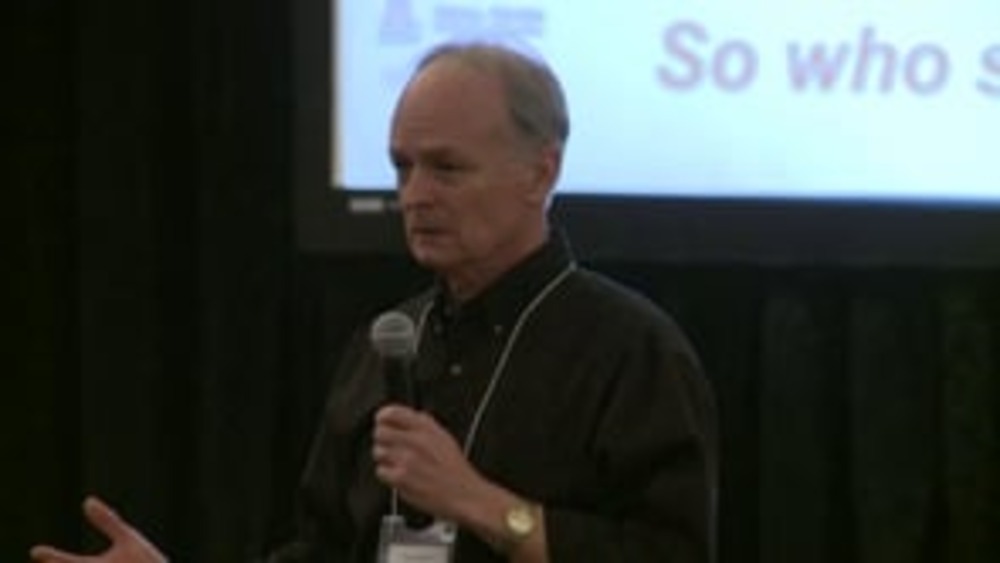
Stephen Cornell: The Task of Reclaiming Self-Governance (Presentation Highlight)
In this highlight from the presentation "Key Things a Constitution Should Address: 'Who Has Responsibility for What?'," NNI's Stephen Cornell provides an overview of the fundamental questions that Native nations must ask themselves as they reclaim control over and then redesign their governance…
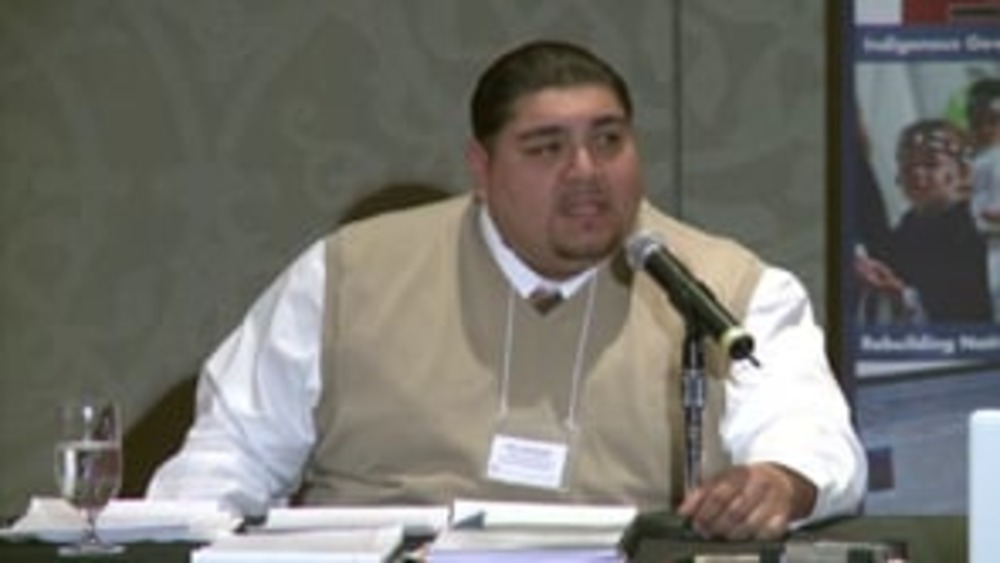
Ruben Santiesteban and Joni Theobald: Choosing Our Leaders and Maintain Quality Leadership: The Lac du Flambeau Band of Lake Superior Chippewa Indians
Ruben Santiesteban and Joni Theobald of the Lac du Flambeau Band of Lake Superior Chippewa Indians provide an overview of how Lac du Flambeau developed a new approach to cultivating and then selecting quality leaders to lead the Band to a brighter future.
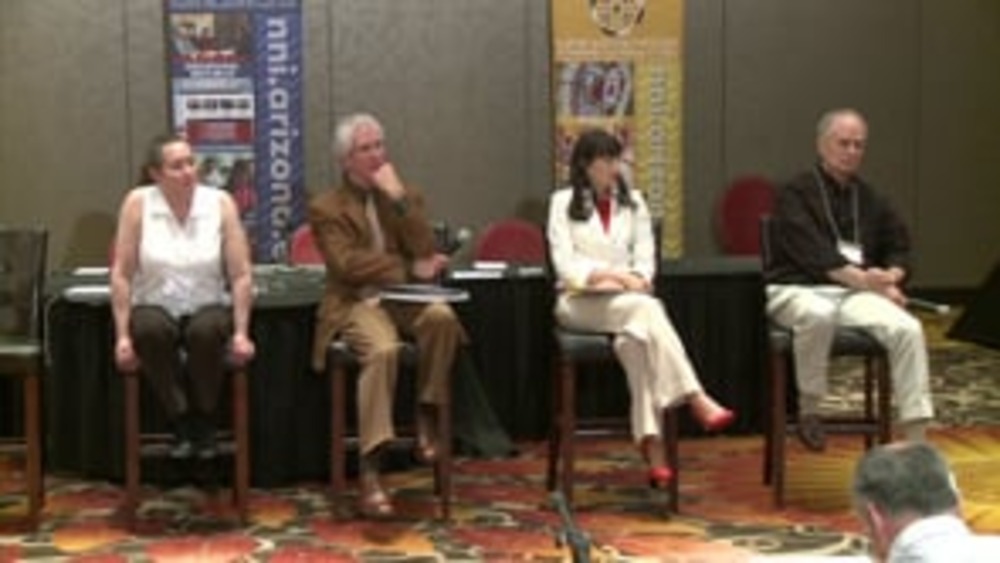
Constitutions and Constitutional Reform - Day 1 (Q&A)
Presenters and moderators from the first day of NNI's "Tribal Constitutions" seminar gather to field questions from seminar participants on a variety of topics ranging from dual citizenship to the relationship between a nation's constitution and its economic development environment.
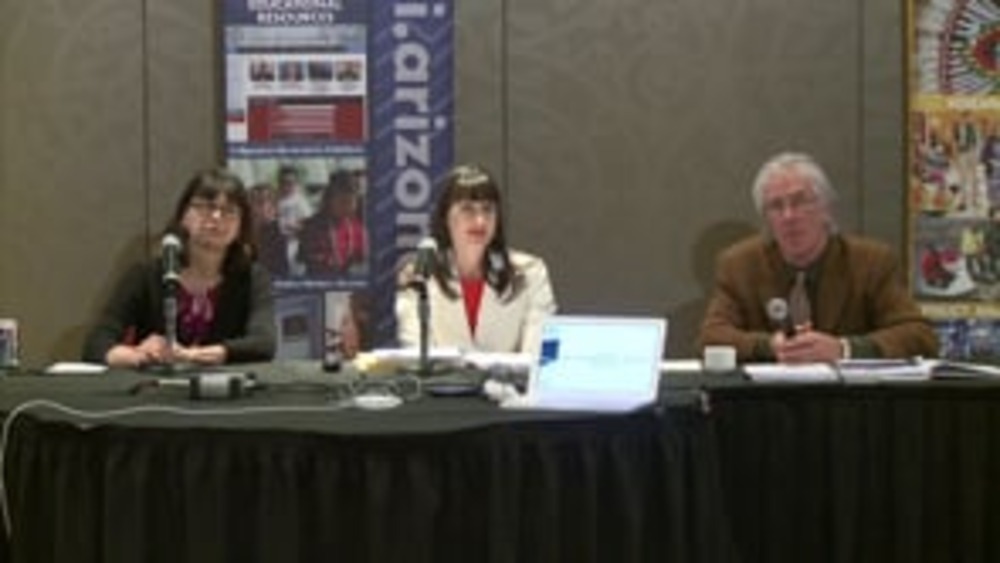
Jill Doerfler and Carole Goldberg: Key Things a Constitution Should Address: Who Are We and How Do We Know? (Q&A)
Presenters Jill Doerfler and Carole Goldberg field questions from seminar participants about the various criteria that Native Nations are using to define citizenship, and some of the implications that specific criteria present.
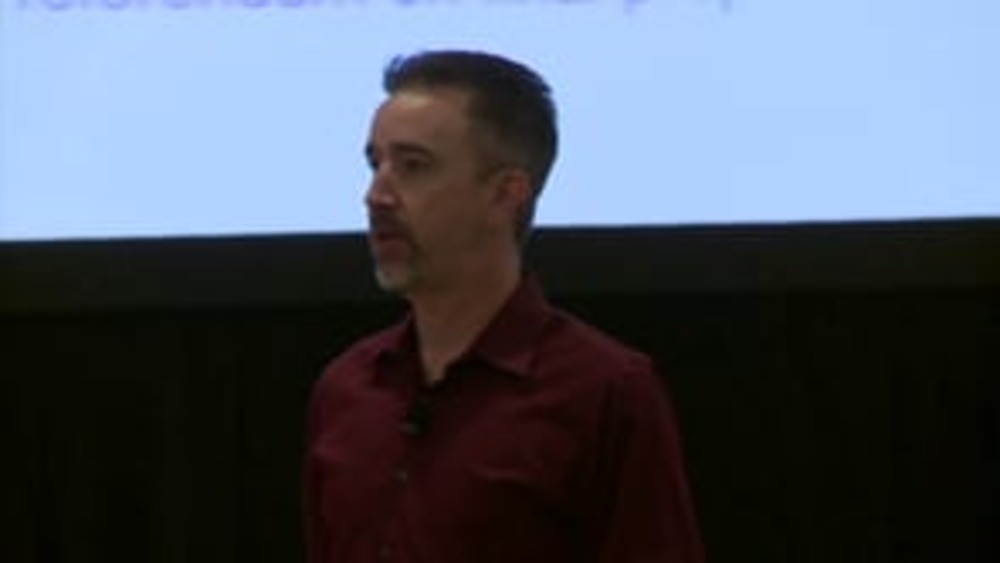
Ian Record: Setting the Focus and Providing the Context: Critical Constitutional Reform Tasks (Presentation Highlight)
In this highlight from the presentation "The Process of Constitutional Reform: The Challenge of Citizen Engagement," NNI's Ian Record lays out two critical overarching tasks that those charged with leading a nation's constitutional reform effort must undertake.
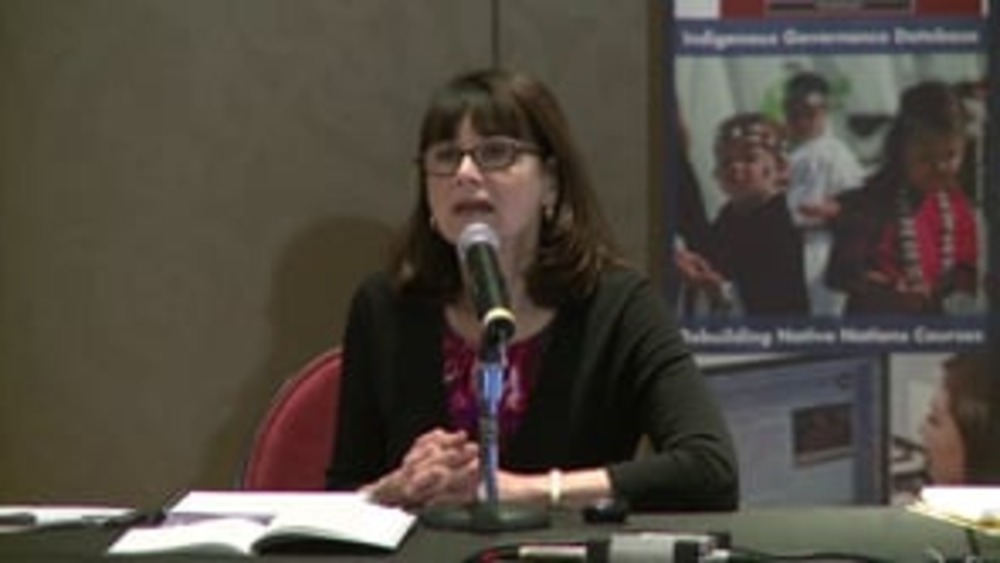
Carole Goldberg: Designing Tribal Citizenship
Scholar Carole Goldberg shares what she's learned about citizenship criteria from her extensive work with Native nations across the country, and sets forth the internal and external considerations that Native nations need to wrestle with in determining what their citizenship criteria should be.
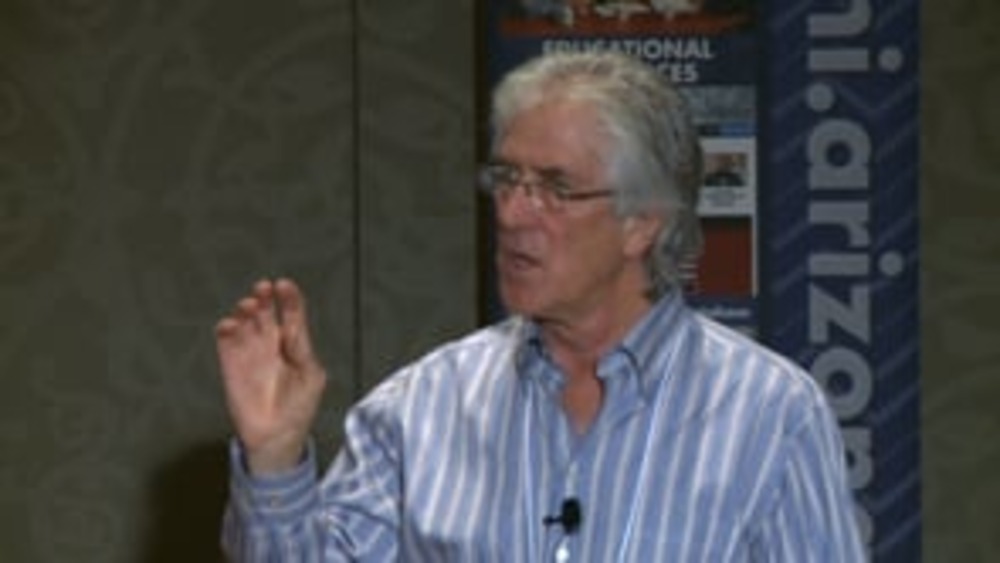
Robert Hershey: The Legal Process of Constitutional Reform
Robert Hershey, Professor of Law and American Indian Studies at the University of Arizona, provides an overview of what Native nations need to consider when it comes to the legal process involved with reforming their constitutions, and dispels some of the misconceptions that people have about the…
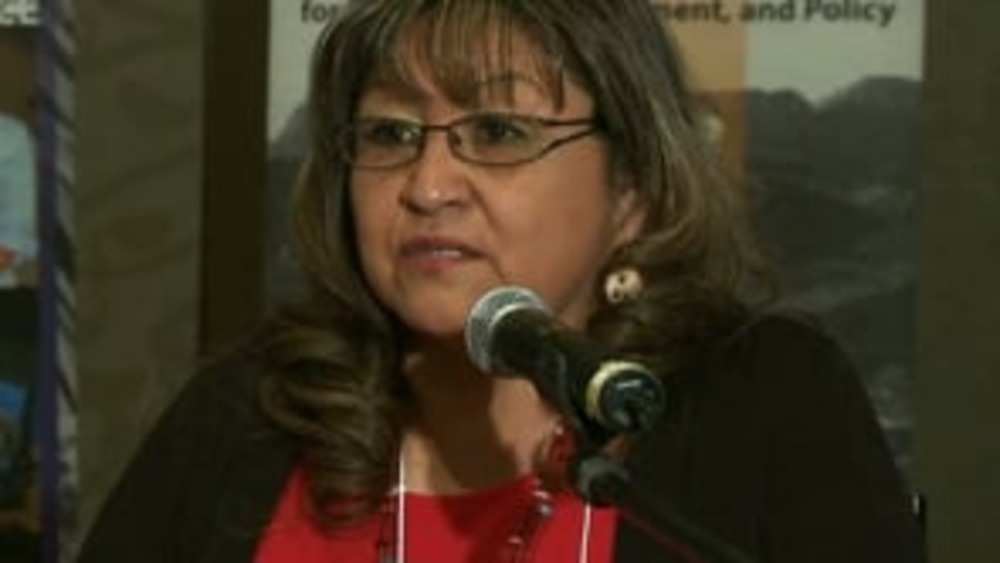
From the Rebuilding Native Nations Course Series: "The First Key to Effective Constitutions: Legitimacy"
Frank Ettawageshik, Joan Timeche and Frank Pommersheim discuss the importance of constitutional legitimacy to effective Native nation governance, and stress that the source of that legitimacy is the very people a constitution is designed to serve.
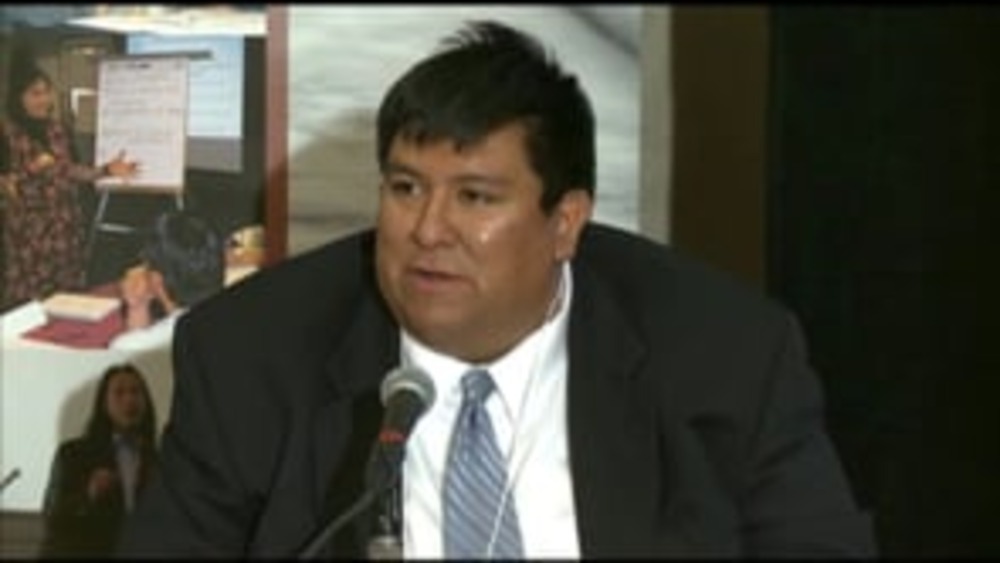
Anthony Hill: The Process of Constitutional Reform: What Gila River Indian Community Did and Why
Formerly the Chairman of the Gila River Tribal Constitution Task Force, Anthony Hill describes the process that the Gila River Indian Community has engaged in as it undertakes reforming its constitution and system of government. Hill also offers some tips and strategies other Native nations should…
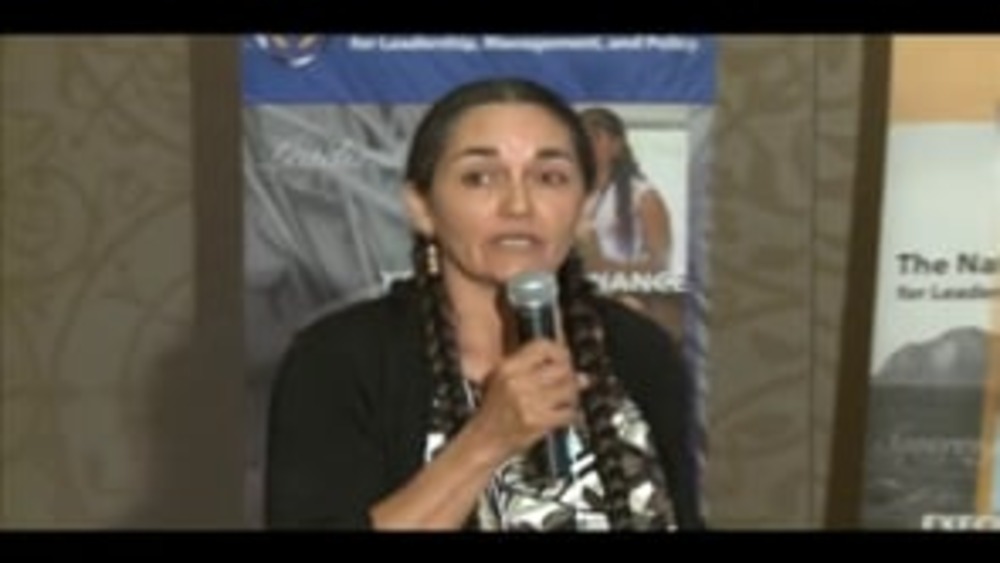
Gwen Phillips: Reforming the Ktunaxa Nation Constitution: What We're Doing and Why
Gwen Phillips, Director of Corporate Services and Governance Transition for the Ktunaxa Nation, discusses how Ktunaxa is using the British Columbia treaty process to reconceive and restructure its governance system from the ground up in order to revitalize Ktunaxa culture, language and core values…
Pagination
- First page
- …
- 1
- 2
- 3
- …
- Last page
